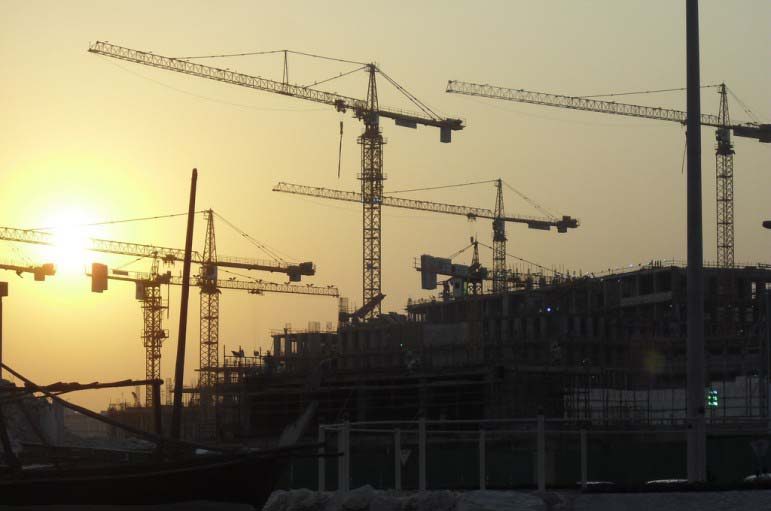
Qatar’s economy is booming, but remains heavily reliant on the oil and gas sector despite diversification efforts – most of which have yet to create sustainable sources of wealth, according to a new government report.
It’s a departure from the narrative contained in many recent economic reports, which suggest the construction boom related to preparations for the 2022 World Cup is coming close to overshadowing the economic impact of the natural resources sector.
That may be part of the story, but most of these projects are one-time initiatives that show no signs of being a sustainable, long-term source of wealth, according to a commentary contained in an economic outlook report, the Ministry of Development, Planning and Statistics.
It forecasts Qatar’s GDP will expand by a robust 7.7 percent next year. That’s higher than what many banks are expecting; the median prediction among 19 financial institutions cited in the report is 6.1 percent.

With oil production declining and gas extraction largely flat, most economic growth next year will be in the non-hydrocarbon sector, the report says. The largest growth will be in the services industry – which includes finance, real estate, transportation, communications and other business services – and, to a lesser extent, construction.
New homes, shops, schools and health centers need to be built for the country’s rapidly increasing population alongside additional highways, rail lines and sanitation systems. Meanwhile, stadiums, training grounds and hotels are being planned for the World Cup.
Added together, all this non-hydrocarbon activity accounted for 47.9 percent of nominal GDP in the first half of 2014. That’s up from 41.9 percent in 2011.
“Mixed” scorecard
The uptick towards the symbolic 50 percent mark is seen as a milestone by many observers as a sign of Qatar’s maturing economy. Diversification is highly desirable because it makes the country less vulnerable to swings in energy prices and will help Qatar maintain its standard of living even when its oil and gas reserves are depleted.
Several government-led initiatives have attempted to accelerate this process, although the International Monetary Fund has previously questioned their effectiveness.
Local program includes the Qatar Science and Technology Park, which aims to encourage advanced research and commercialize new innovations, as well as a new tourism strategy intended to dramatically increase the number of business and leisure travellers to the country.

One of the most successful diversification examples is the growth of Qatar Airways and the new Hamad International Airport, which has helped position the country as a major transportation and logistics hub.
However, this week’s economic outlook report concludes these initiatives have yet to take hold on the economy.
“Qatar’s economy is still heavily dependent on exploiting its non-renewable oil and gas mineral deposits … even though oil and gas output has plateaued,” the report said.
“So far at least, Qatar shows little sign of establishing a foothold in new activities and exporting new products … viewed through (a) wider prism, the scorecard on diversification is mixed.”
Analysis
The ministry used several measurements to arrive at this conclusion.
Outside of oil and gas, most local economic activity is concentrated in non-tradable sectors, such as construction.

“Though meeting important needs today, (it) cannot provide a durable platform for generating wealth in the future,” the report said.
Most of Qatar’s export income still comes from oil and gas sales, although transportation services has expanded significantly in recent years.
Another measurement is ownership structure of companies, which will ideally show a shift from a largely state-led economy to one where the private sector leads the way in generating wealth, income and productive jobs.
The ministry said there have been gains in this area, but from a very low starting point. In 2012 – the last year in which data is available – the proportion of private activity in the overall economy was larger than a decade earlier, but had receded from its peak in 2009.
Meanwhile, the share of Qatari citizens opting for private employment has grown to 11.9 percent in 2013 from 5.8 percent in 2006.
Despite its findings, the ministry cautions that other changes – such as a shift towards a highly educated and skilled workforce, enabled by new universities and training centers – will take years to show results.
“The discovery of new and durable sources of wealth creation – the essence of diversification – will … require deeper transformations in incentives, institutions and capabilities,” the report said.
“Economic diversification cannot happen with the stroke of a pen.”
Here’s a copy of the full report:
Qatar Economic Outlook 2014-2016 Update
Thoughts?







